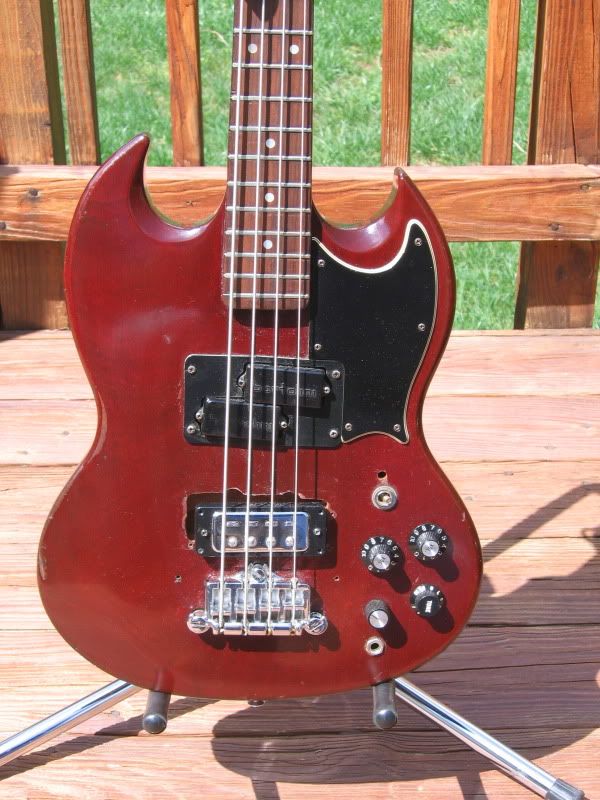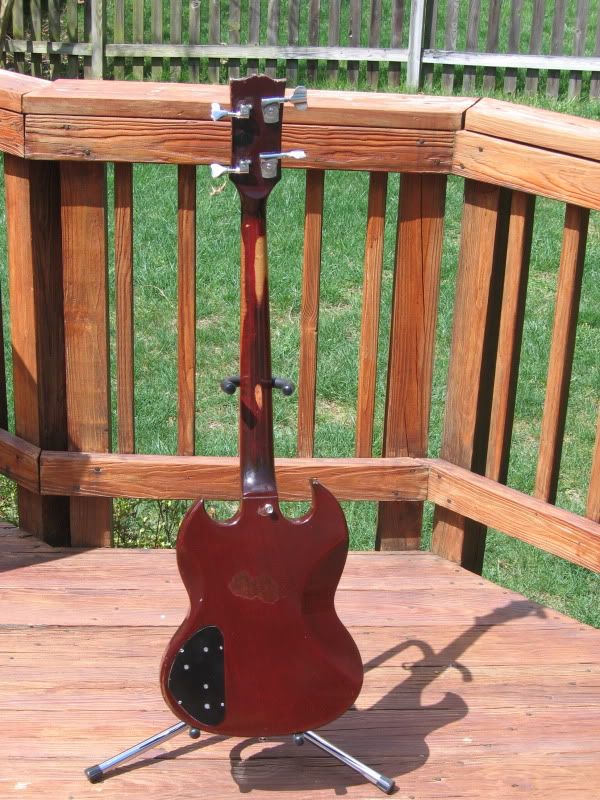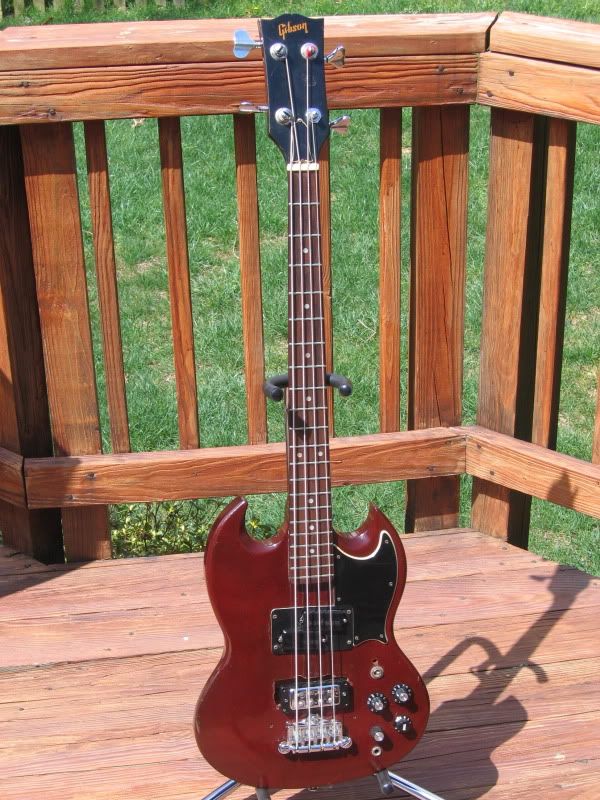This is going to be a long term project. i will try to post some pictures and let you all in the on obstacles i face as I work on this bass.
Early 70's EB-3, brutally modified:

Work to do:
Remove old pickups, patch holes in body and pickup route, repair finish, install correct Gibby pickups and circuit with 4-way switch. Oh and I almost forgot- Plane the fingerboard and do a total fret job with mandolin frets.
This bass arrived with the Bartolini P-bass pickup in the neck position and a Seymour Duncan J bass PU in the bridge position which was in the hacked up pickup route held in by mosonite and rubber cement. It wasn't pretty.
In the picture you are seeing a generic chrome pickup that I put in the bridge position just to test the bass. The JB pickup bit the dust when I removed it. There is also a mysterious hole next to the pickup switch that had another pickup switch in it! I removed that when I decided to clean up the existing controls on the bass.
A major headache with this restoration is finding the correct EB-3 bridge pickup. Anybody have one that they can spare?
I'll post more when I have more.
-bassman


